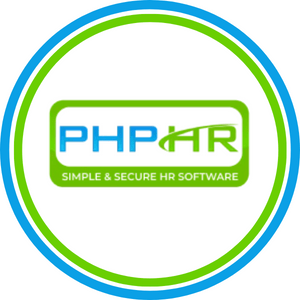Human Resource Management in Company

Human resources management is an organizational function that deals with issues such as remuneration, hiring, performance management, organizational development, safety, employee motivation and satisfaction, benefits, administration, and training related to human resources. It is a strategic approach to human resource employment, growth, and well-being in a business. It entails managerial decisions and activities that have an impact on an organization’s relationship with its personnel. Human resource management is critical, especially in today’s businesses. The HR management department’s and HR managers’ responsibilities have expanded and will continue to expand. There are new policies and compliance challenges to consider, as well as more HR roles and processes to handle. HR must be strategically managed in order for the company to achieve its business objectives and maintain its competitive edge, which can only be accomplished through effective HRM.

IMPORTANCE OF HR:
HR is good at managing a workplace and keeping track of the company’s finances, legal and regulatory compliance, and personnel information. HR coordinates training and development programmed and collaborates with other departments to ensure that relevant training sessions are completed. HR ensures that all standards are completed so that employees do not feel as though they are losing out. To keep such a workforce for a long time and avoid excessive labor turnover, HR develops policies such as training and development, appealing wage and compensation, incentives, and promotion plans, among other things.
Human Resources Management Roles In Company
One of the most crucial aspects of a successful organization is human resource management. It aids in advising the management team on how to manage people strategically as business resources. Employee training, benefits, and development initiatives, as well as recruiting and employing people with specific talents to suit the company’s goals. HR management assists managers and supervisors in building employees’ future talents, such as advising managers and supervisors on how to assign people to various jobs within the firm and how to successfully adapt to its environment. Human resources management necessitates strategic planning to accommodate not only an employer’s changing needs, but also a competitive employment market that is continuously shifting.
SAFETY AND RISK MANAGEMENT
HR management aids in the analysis of benefits and the reduction of costs connected with attrition, turnover, and the recruiting of replacement workers in the workplace. By hiring risk management specialists and ensuring a safe working environment, HR management aids in safety and risk management. An HR should identify and assess risks, such as whether they are financial, medical, or personal, and implement risk management techniques such as acceptance, modification, avoidance, monitoring, and resolution. HR and human resource tragedies such as accidental death, divorce, chronic disease, and the influence of interpersonal relations on enterprises and families have received minimal attention from risk management.
RECRUITING
HR administration oversees the whole hiring process, from resume screening to scheduling interviews to onboarding new staff. HR management is well-versed in placing web ads, evaluating applications, conducting preliminary interviews, dealing with department hiring managers, and determining personnel requirements. Create job descriptions for the required talent. It is up to the HR recruiter to determine whether or not he or she is effective in finding the suitable person. Identifying talents using a strategic approach that is guided by the organization’s talent requirements. One of HR’s most important jobs in an organization is conducting interviews, background screening, and orientation. To hire and train personnel effectively.
TRAINING AND DEVELOPMENT
Training and personal development serve to reinforce any weak links in the organization, and investing in your personnel enhances the company and offers it a competitive advantage. Human resource management places a premium on high-quality training that supports the company’s fair hiring policies. Training and development help to improve an individual’s level of awareness as well as their skills and talents, as well as inspire them to do their jobs well. It also aids in increasing productivity and performance by having skilled individuals working for the organization.
STRATEGICAL MANAGEMENT
Employee loyalty to the organization can be increased through resource management. As a result, once hired, employees are dedicated to their jobs and feel pushed by their boss. Human resource management that is effective reduces the organization’s exposure to and liability from charges of unfair labor practices. Identifying, investigating, and resolving unaddressed workplace issues can embroil an employer in legal issues related to federal and harassment regulations. Planning what work needs to be done and predicting how long it will take and how much money it will cost. HR is responsible for creating a work schedule as well as defining workflow and duties. Analyze the documentation and make improvements to the procedure.
JOB ANALYSIS
Human resources management performs job analysis, which entails describing the nature of the job, as well as the skills, talents, work experience, and qualifications required for a specific job within an organization. This aids in the consolidation of duties and tasks into a single work set in order to achieve the organization’s objectives. HR also prepares job descriptions, which comprise an employee’s tasks and responsibilities, duties, and contributions. Job analysis data is also used by HR managers to execute human resources operations such as recruitment, selection, performance evaluation, and career development programmed.
PERFORMANCE MANAGEMENT
By reviewing and analyzing employee performance, human resources management allows for efficient performance management. Managers may provide help to employees who need it and recognize future professionals with good performance management. Rewarding and recognizing those that create and develop a high-performing, healthy culture. Linking business demands with resource requirements is one example of workforce planning. Employee communication and engagement, as well as feedback. Having an effective performance management approach can help your organization develop.
EMPLOYEE SATISFACTION
People have the right to be satisfied by their work and by an organization that is profit motivated; therefore HR management works efficiently on employee satisfaction. Human resources management bridges the gap between the organization and its employees, and managing a successful organization necessitates good human resources management and an effective HR who is committed to the organization’s progress and growth, as well as strategic human resource management. Employee satisfaction can be improved by practices such as awards and recognition, feedback, a great work environment, strong engagement with employees, and skill development.
TALENT MANAGEMENT
Human resources management aids in attracting and maintaining talent, as well as assisting employees in adapting to organizational change and technological advancements. Attracting, developing, onboarding, motivating, and retaining high-performing individuals are all HR procedures. Recruitment, onboarding, training and development, workforce planning, performance management, succession planning, remuneration and benefits are all part of talent management. Employers can deliver on key talent goals, such as pay fairness or workforce diversity, with confidence if they have accurate and timely data. It’s easier to find talent, onboard new workers, manage employee strengths, assess skills and credentials, and recognize and reward top performers using talent management. Business executives now have more time to concentrate on becoming a preferred employer. Some HR outsourcing companies can also assist with recruitment and talent management.
QUALITY OF PROFESSIONAL HR
A skilled communicator is a must for every people-facing position, and HR is no exception. From screening and interviewing job candidates to resolving office concerns, effectively articulating your thoughts and conclusions aids in problem resolution. HR is a gifted multitasker who can handle everything from recruiting strategy to employee engagement to benefits administration. A qualified HR professional is willing to take chances and sees failure as an opportunity to improve their idea and grow personally and professionally.






